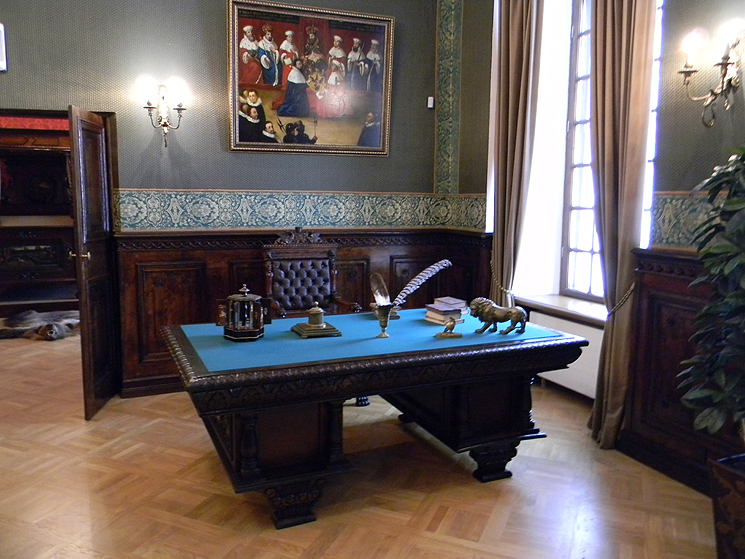
What if the beliefs of people are determined by their lifestyle? A thesis that may sound commonsensical to some. Others would be quick to sniff out Marxism.
For some time, I have been wondering if it may be the way to explain the differences in views between various political writers in the pre-partitions Commonwealth. It is also linked, in the long term, to the general trend of developments in modern Western democracies.
If we were looking for different explanations, one could imagine, for example, that the thinkers’ views on state stem from their exposure to political practice. Today, party politicians, government officials, journalists, political scientists and ordinary citizens are distinct groups with very different attitudes and experiences, even if on the surface they can belong to the same political camps.
A problem with such theories in the case of the Republic is that it was hard to be a citizen-nobleman without one’s own political experiences. If someone was at all interested in public issues, all it took is to go to a sejmik assembly. It was certainly wise to do so in tax matters, and coming armed for a so-called pokazowanie (military muster; they could proclaim resolution as ordinary sejmiki) was even compulsory. A sejmik happened every two years twice – to elect representatives and accept their relation from the Commonwealth sejm session – and also, separately, to elect delegates to the state tribunal and for many other occasions. On a sejmik, each petty noble who possessed a patch of land could aspire to speaking and taking part in the local political schemes. A wealthy burgher had for himself his local municipality; the famous burgher poets, such as the Zimorowic brothers of Lwów or Sebastian Klonowic, were important people in their cities.
But indeed there were some purely academic political researchers in the Commonwealth, even if it was a relatively rarer phenomenon than today. We could take as examples Sebastian Petrycy, the burgher, Cracovian medical doctor and commentator of Aristotle from the beginning of the 17th century, and Aron Olizarowski, the Jesuit sociologist (as we would say today), writing in the middle of that century.
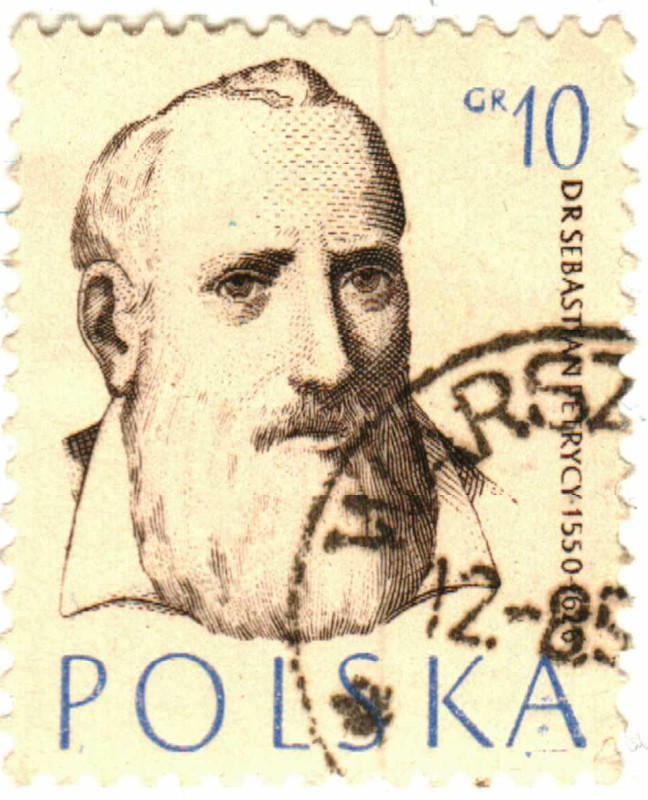
Their areas of interest were quite abstract. They were both concerned with questions about states and human societies in general – how and why do they arise – although, of course, in their minds the “canonical” human society was something like the Commonwealth, built on the will of citizens. And these were times when, like in classical antiquity, the category of citizens could be much narrower than the general category of people. Petrycy is teasing here the Polish agrarian imagination, using the words miasto (city) and mieszczanin (burgher) instead of rzeczpospolita (republic, commonwealth) and obywatel (citizen) – and is quick to add: those who are not nobles cannot be called citizens/burghers or the “sons of the Crown” (= of the Kingdom of Poland, part of the Commonwealth): którzy nie są szlachcicami, nie mogą być zwani mieszczany ani koronnymi synmi – which means that only a noble can be a “burgher”! But the scholar from the University of Cracow puts forward a vision whereby all the grand and rich could have access to power, even the ones from the cities, while all the “poor” and the “bastards” would be excluded.
The Olizarowski’s heart was softer, as he spoke up for personal freedom of peasants[1]. The sentiment in which both these theorists converge is political elitism and (relative) monarchism – associating with the central royal power the hope for improvement in the situation of people who didn’t get into the ranks of nobles – and for introducing “order” in the famously unruly Polish-Lithuanian system.
An interesting phenomenon that has not been, I think, pointed out and described enough, is the link between regalist fantasies of this kind and the feeling of one’s weakness and being wronged in the Commonwealth. Piotr Skarga, the leading Jesuit propagandist in the Sigismund III’s efforts to overthrow the political system before 1607, is famous for his remarks about improving the situation of peasants. Of course as we know, the king Sigismund would be very moved by these promises had he indeed seized absolute power like his peers in Brandenburg or Austria. He would still have to rely on giving away land to aristocrats for support, only without the parliament’s oversight. Skarga, the warrior of Counter-Reformation, wouldn’t be pleased to know that after his death the Protestants also sought hope in subservient addresses to Sigismund III. They saw their own political decline[2], which resulted from his discriminatory policies. Similar regalist sentiments can be found in plebeian literature.
In general, everyone who was pushed aside and discontented dreamed of solving their problems by the king’s strong hand. It is a testament to the power of the system, and determination of the noble masses and their allies from the big cities of Royal Prussia, that Poland and Lithuania didn’t see the establishment of a typical aristocratic monarchy.
Yet it can be seen in the opinions of political writers who in fact participated in that system of the Republic, that even among them there existed considerable differences in mentality. It’s here that, I think, a division based on the sources of income emerges. In the ranks of nobility, we still have the people of pen and cabinet – professional clerks of the king or a magnate – and people who had their own holdings in some nook of the country and mainly took part in the local sejmik affairs.
Everyday lives of these people, and also their general outlook, had to differ widely. Stanisław Orzechowski or Andrzej Maksymilian Fredro had impressive reading lists — the former with Plato in Greek (the great and timely achievement of Renaissance), the latter with the contemporary political philosophy of English Revolutionary period. But they remained Ruthenian gentry who probably could hear in their libraries sounds of poultry from their own yards. Stanisław Herakliusz Lubomirski, the grand marshal of the Crown (of Poland) since 1676, would probably be a little offended to be put next to such provincial farmers. But it is true that our magnate, lounging in Ujazdów near Warsaw (in the future Łazienki Park, to be exact), where he conceived his refined literature and gloomy opinion pieces, could find an understanding with petty nobility on the level of sustaining himself from his own land.
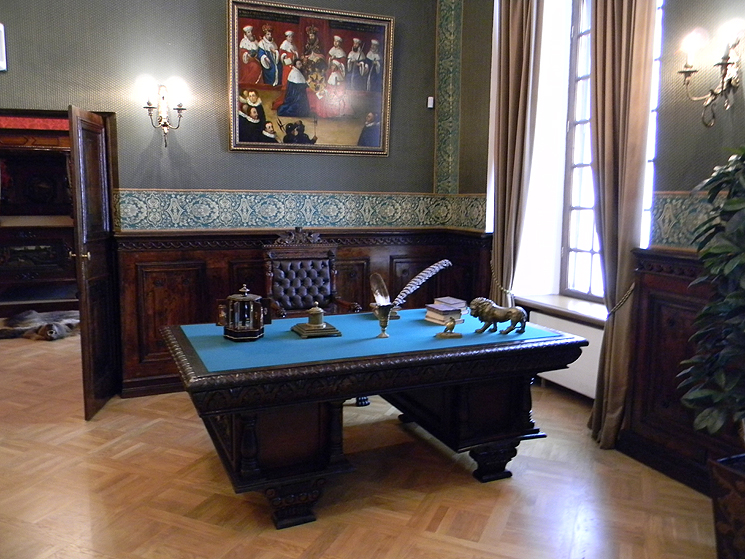
It’s hard to miss here the contrast to careers of such figures as Górnicki or Goślicki.
They had started as members of the “Paduan mafia” from which hailed the leading Polish poet of the 16th century, Jan Kochanowski, and the leading politician, Jan Zamoyski, not to mention the cardinal Hosius. All this top crowd was concentrated in their youth on the University of Padua, which was then on the territory of Venetian Republic. The Paduan University was renowned for its law and medicine faculties, including the Anatomical Theater for public dissections; Galileo taught there, and a hundred years before that Copernicus was getting his heliocentric ideas during his studies. Zamoyski was the elected rector of the school for some time, after making himself known for his classical juridical work on Roman senate.
The talented boys from Padua, with some luck, landed jobs of royal secretaries after returning. Their tasks, as much as any were actually enforced, included preparing documents, partaking in allocation of leases and adjudicating cases on royal land. Their environment was the court, as was the monarch’s protection and the life of polished society. (To be fair, in the Commonwealth even “polished society” could mean straight feasting in mostly male company, to the great regret of cultured Górnicki.)
There is no wonder – as I’ve already mentioned in my recent posting on Modrzewski – that it was the court that formed for them the mental image of power, even in a free country, in libera republica. In The Polish Courtier (Dworzanin polski, 1566), in Goślicki’s musings on The Accomplished Senator (De optimo senatore, 1568) we see lords and senators roaming the chambers of the royal castle. One can ponder what was so outrageous in relatively tame and conservative reflections of the bishop Goślicki that they were banned in England – it’s probably more of an indication of autocratic paranoia of the bloody Tudor regime.
Łukasz Górnicki would abandon this mental frame in his later dialogues, penned after the death of the last hereditary king (in 1572), when he would speak openly about representatives to the parliament (sejm), of senators and republic. It is Venice that becomes for him the template for Poland. The main reading on her political system was at the time Gasparo Contarini’s De magistratibus et republica Venetorum (sometime I should write more on that work). Górnicki still holds on, though, to his nostalgic longings: how good things were during the reign of Sigismund the Old (1507-1548), when the royal power was intact; the king alone was not able to do anything, but he could do everything with the council and the representatives, the dignity of senators was untainted, the representatives did not usurp more power … the king lived constantly in one place, and he did not idle, but adjudicated cases (władza królewska była cała; sam król nic nie mógł, a z radą i z posły mógł wszytko, dostojeństwo senatorów było nienaruszone, posłowie nie przywłaszczali sobie więcej władzy (…) król na jednym miejscu ustawicznie mieszkał, a nie próżnował, ale sądził [3]) An interesting recurring theme in Górnicki’s writing are complaints about noises, which apparently occurred everywhere the court was showing up: in Poland it wasn’t bothered to silence random rowdy folk and the plebs that didn’t know to behave.
This of course doesn’t alter the fact that Górnicki in The Road to Full Liberty (Droga do zupełnej wolności) presents himself as a rather consistent republican. He thought that king should be stripped of the right to give land and offices and that strong bureacratic councils should be instituted, taking the Venetian example. But I want to call attention here, for a moment, not to his specific political ideas, but to the elite and court-bound traits of his imagination. It is, in that respect, somewhat akin to that of Modrevius. The political ideas of professional bureaucrats of the state and churches (Górnicki was also officially ordained to lower priesthood) circled around better organization of government by the narrow, professional or at least wealthy elite. It would be the best, their thinking went, if the influence on government would be a thing of the few, if we would have some virtuous supermen as lords, if we’d punish the insubordinate, and then surely there will be nothing to be afraid of.
It should be stressed there that this kind of mentality wasn’t at all specific to the Polish-Lithuanian mixture of a government. In Venice, in Netherlands, in Swiss cantons rich patricians and aristocracy also dominated, with varying degrees of deference from the people. The historical significance of these systems is that they allowed the thinking of humans as beings that are fundamentally free, and not in bondage for someone from the cradle to the grave. Nowadays, perhaps to our detriment, we probably forgot as a society what was monarchy in Europe. People tend to imagine some lavish dancing parties with princesses and the English queen hanging out quietly in Windsor. But when Górnicki, or Machiavelli for that matter in Discourses on Livy, were writing that only a republic can guarantee its citizens their property, safety of life, wives and daughters not raped, their readers could readily recall vivid images of monarchical governments’ actions in their countries or just behind the border.
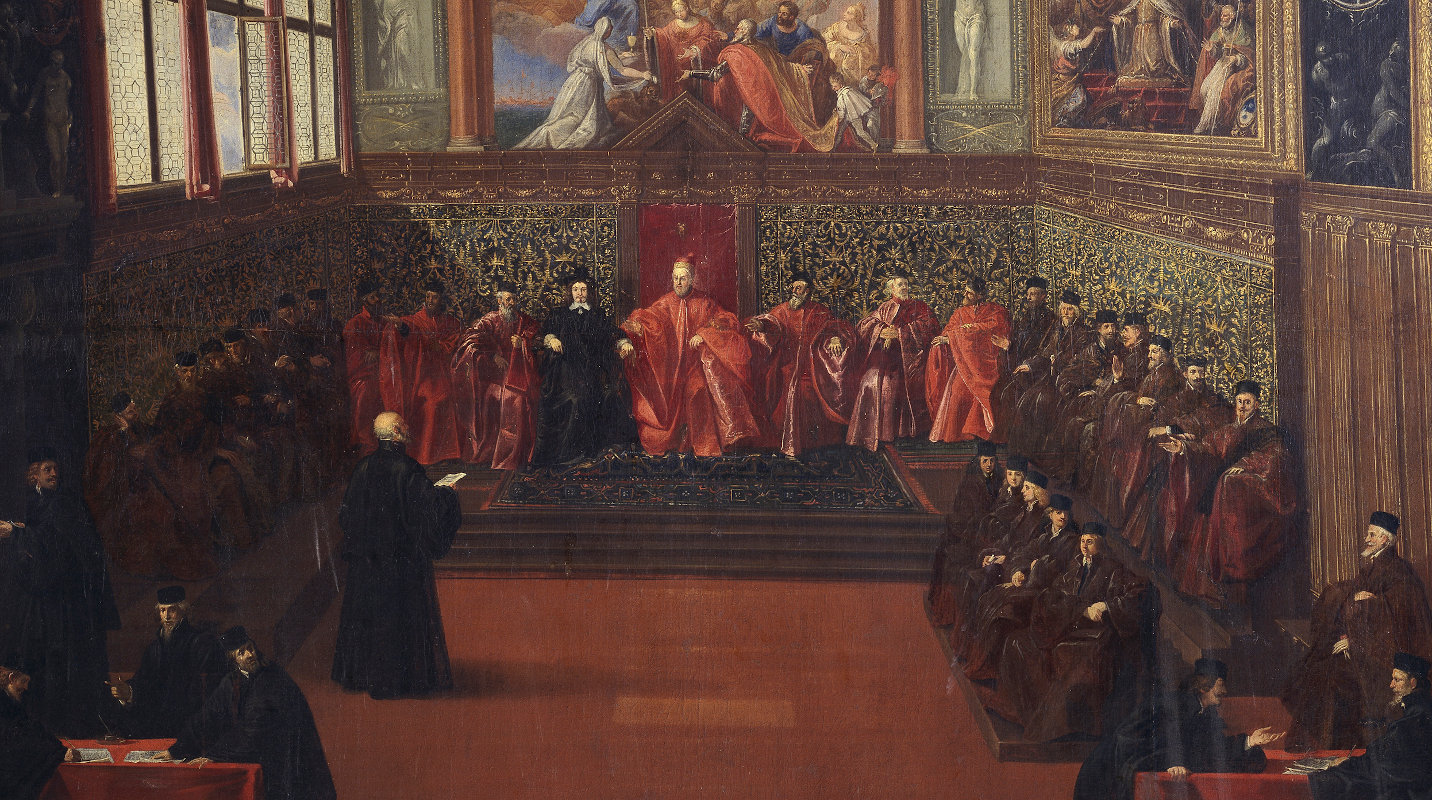
But returning to the exclusivism. The whole European culture before Enlightenment believed that old is most often better and that noble birth and splendor are strong arguments for being right. I would even venture that after the fall of largely artisans-influenced Republic of Florence it would be hard to find a culture to a larger extent forced to tolerate radical democratic ideas than the Polish-Lithuanian one. But ideas of that kind were not born in the court, among royal secretaries, but on farms and on marshlands and near the woods, in little manors of Małopolska and Wielkopolska, in the assemblies of Ruthenian nobility, sending its militant resolutions from near the Muscovian border.
Consider for a moment two different officials that do not fit the pattern of typical Paduan humanists. Their career paths were marked by powerful patronage. Andrzej Wolan (Andrius Volanas), one of the most important intellectuals of Lithuanian Calvinism, was a secretary and subordinate of Mikołaj Radziwił “the Red”, the Grand Chancellor and Hetman of Lithuania. He supported Wolan for a parliament membership and sent him for diplomatic negotiations. In 1575 Wolan published his main work, De libertate politica sive civili – On Political and Civil Liberty (although the contemporary translation rendered civili as ślacheckiej, i.e. noble). There’s a consensus among researchers that despite the title and verbal assurances how important is the topic of liberty for the author, his musings are a vehicle for criticizing various “deficiencies” of freedom and advancing the case for curtailing it along with strengthening the royal power.
Dodging rhetoric of that kind and clever semantic stratagems are crucial elements of a “starter pack” of every writer of the Commonwealth that flirted with monarchy. They were also bound to appear in the toolbox of Łukasz Opaliński the son, whom traditional historians regard as perhaps the greatest political writer of 17th century. Indeed he represents all the dutiful notions, as promulgated by historians with later hindsight: he criticizes parliaments, supports electing the next king with the previous one still living etc. Although it seems that, compared to say Olizarowski or Fredro, he lacks any universal message. Since 1650, as a royal supporter, he holds the high office of court marshal (marszałek nadworny).
Opaliński the son owed his fortune to Łukasz Opaliński the father, walking the typical path of a royal protégé, which in the Commowealth was the main way to produce new magnates. Born in 1581, as early as during the Sandomierz rokosz (in 1606) he protested the actions of the majority of nobles of Wielkopolska, at the time demanding a public examination of the king. He went to accompany the royal court, and assumed the stance he would maintain until the end. He was rewarded with the office of grand marshal of Poland and large tracts of land. He safeguarded it well, as evidenced by his private war with Stanisław “The Devil” Stadnicki in 1607-1610 and famously brutal treatment of peasants: in a country where, according to popular belief, serfs weren’t dealt with kindly by default.
If the Republic distinguished herself, compared to other historical countries, by the fantastic scale of political writing, conceived and hand-copied throughout the land, the authors who were bureaucrats and magnate protégés saw the one main way to solving problems: more power for the center, for the office-holders and (usually) for the king. And, of course, it would be them who would form the apparatus of such power.
They seldom dared to think what was suggested by the Roman history that they knew very well, the revolution in England and what was openly pointed out by Dunin Karwicki in 1703: that an enduring government could grow not at the foot of the throne, but on its ruins. That the main strength of the Commolwealth is the zeal of citizens of every confession and ethnicity, united by the feeling that they own in common the only free state in the perimeter. And after breaking the republican institutions they would become a loose agglomeration with no unity. They would not advance the position that perhaps instead of longing for “a tyranny, but only quietly, a bit and without going all the way” one should actually remove the dangers for freedom posed by the king and aristocracy.
Most of the authors mentioned above by espousing views like this would undermine their own position.
Radical stances can be found mainly in brochures published anonymously or by people with no significant offices – nominated, of course, by the king. We shouldn’t also discount, as I’ve mentioned many times, that the culture itself attached some kind of sanctity to the crown. This produced many taboos and pushed ideas out to the forbidden territory.
If we want to find among the big names people with non-regalist, non-bureaucratist beliefs, we have to reach for the already touched upon independent growers; people, who like Orzechowski or Fredro could escape to their Ruthenian voivodship among their neighbors; or like Lubomirski had a sizable estate in the fourth generation and a dad leading the rebellion of 1666. This obviously doesn’t mean that the message of these gentlemen was usually disinterested. In Orzechowski’s geometric theories of golden liberty we can find worship of priestly caste (which also included our not so humble God’s servant, parson of Żurawica near Przemyśl), and staunch restistance towards reclaiming crown land from licentious magnate renters. This latter demand was probably disliked by Orzechowski because the executionist movement advancing it included many Protestants, whom he hated.
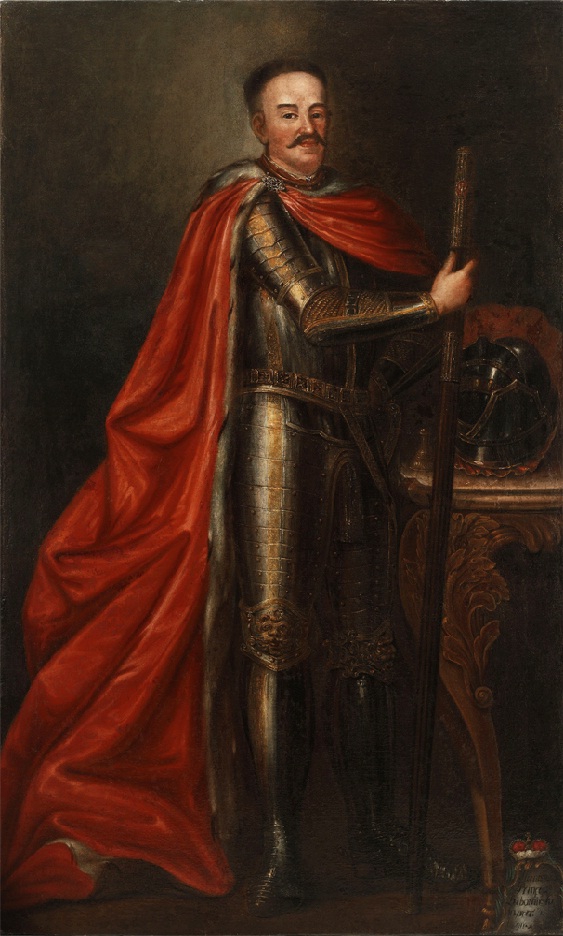
Edgy fatalism of Stanisław Herakliusz Lubomirskis’s political output, the belief that everything in the world is worthless and it’s best not to do anything, finds intesting parallels in ponderings of other magnates of that period. There comes to mind the grand chancellor of Poland (in 1706-1709), Jan Stanisław Jabłonowski, the author of Ungrieving Grief or an Elucidation of the Sins of Our Polish Nation (Skrupuł bez skrupułu w Polszcze albo oświecenie grzechów narodowi naszemu polskiemu). The magnates of old money and dominions found themselves in the Republic in an interesting situation. They had little to gain by favors of the royal court, but, on the other hand, a mass movement of pettier nobility could squash them. This was a lesson learned by the voivod of Kalisz, Aleksander Lipski – styling himself as “count of Lipie” (hrabia z Lipia)[4] – who was slaughtered in a general congress of Sandomierz in 1702 (which, notably, supported king Augustus II’s politics) on suspicions of colluding with Swedes. Similarly one hundred years earlier, in the convention of Sandomierz rokosz (known as Zebrzydowski’s rebellion), it turned out that:
ogromna większość zebranych (…) była nastawiona przeciw senatorom. Kierownictwo rokoszu wyszło niemal całkowicie z rąk Zebrzydowskiego. Siłą kierowniczą stała się masa szlachecka wraz ze swymi przywódcami: Sienieńskim, Pękosławskim, Broniewskim, Łaszczem, Urowieckim, Gorajskim i innymi. Troską Zebrzydowskiego i Radziwiłła było okiełznać radykalne nastroje (…)[5]
the vast majority of the assembled … were against the senators. Leadership of the rokosz has slipped from Zebrzydowski’s grasp almost fully. The driving force was now the mass of nobility, with its leaders: Sienieński, Pękosławski, Broniewski, Łaszcz, Urowiecki, Gorajski and others. Zebrzydowski and Radziwiłł were anxious to impede the radical sentiments …
Before too long, I hope, there will be time to review on this blog militant pamphlets of Sandomierz rokosz, penned by activists like the aforementioned Prokop Pękosławski.
Returning, meanwhile, to Andrzej Maksymilian Fredro, one has to admit that his life wasn’t particularly quiet. He spent it among rowdy citizens of his Ruthenian voivodship, royal soldiers intimidating the nobility, the parliament presided by him broken by duke Radziwiłł’s clients[6]. But what is striking in Fredro’s writing, is emphasis on how personal independence of citizens is crucial for freedom of the republic; even if Fredro himself was an expert in the Early Modern system of clientele and patronage. In his classic diatribe for “rule of the people”, the chapter Praerogativa popularis status repraesentantur Monarchiam… (translated as On superiority of republic over monarchy[7], 1668) he stresses that someone who is subject to someone else’s power can enjoy a good life only as long as whims of someone’s graces remain beneficial.
Living in a republic, he says, I hold my freedom in my own hand and, one could say, I own the power over it; meanwhile, in a monarchical state, my security lays in someone else’s grip (Żyjąc w rzeczypospolitej dzierżę wolność w swym własnym ręku i posiadam niejako nad nią władzę; natomiast w państwie monarchicznym moje bezpieczeństwo spoczywa w ręku kogoś innego). He presents an allegorical picture of a nightingale living in the wild talking with one living in a golden cage in a palace: I, on the other hand — responds the wild bird to the caged one’s exultations — live not subject to anyone; whatever I own, I owe it to my own resourcefulness; I may not be in a lush house, but I do enjoy liberty independent of anyone (Ja natomiast żyję nie podlegając nikomu; wszystko, co posiadam, zawdzięczam własnej zapobiegliwości; nie przebywam wprawdzie we wspaniałym domku, ale za to cieszę się wolnością niezależną od kogokolwiek).
In another fragment, entitled Punctum primum de potentia populi, he mainly elaborates on the need to advance the economy, but he also pictures his overall vision of the state. Perhaps he expresses feelings of his fellow nobles, reaching for the ideals of Roman republic and a community of equals: Citizens, equal in their dignity serve the republic … not as servants, but precisely as citizens (and equal to each other, if one can say, co-rulers), who at the same time govern and are governed — not for power and benefit of one, but for the republic and for the liberty (Równi godnością obywatele służą rzeczypospolitej (…) nie jako słudzy, ale właśnie jako obywatele (i równi sobie – jeśli można tak powiedzieć – współwładcy), którzy jednocześnie rządzą i są rządzeni – nie dla władzy i korzyści jednego, ale dla rzeczypospolitej i dla wolności)[8]. It would probably be hard to summarize Western republican tradition clearer than Fredro does it here.
In the light of history of that tradition a comparison comes to mind between the figure and views of Fredro with those of Thomas Jefferson, one of the founders of the United States. For Jefferson his Red Ruthenia was Virginia, where he similarly occupied himself with tending to his estate and reading. He felt more of a man of Virginia than of the US, perceiving it as, above all, a union of states, even during his own tenure as president. Jefferson was also the main defender of grassroots government and civil liberties against Federalists, who played in the States a role somewhat analogous to that of regalists in the Commonwealth. To his relentlessness we owe the Bill of Rights and constitutional guarantees of civil rights against arbitrary abuses of power.
I am mentioning Jefferson here because in the story of his times and activity one can see links between lifestyle and political stance that we are talking about. Federalism and bureaucratic-and-monarchic-leaning tendencies (evidenced, among others, by supporting interventionist powers against republican France by the faction of Adams and Hamilton) were advanced by states of the North. There lived plenty of citizens-workers forced economically into wage labor, capitalists seeking to build their private power with credit and contract, and of intelligentsia of the kind which would serve magnates in the Commonwealth or advance revolutionary bureaucracy of lawyers in France.
Jefferson wasn’t enthusiastic either about his Southern homeland, which was swamped in obscurantism and unwilling to abolish slavery. In fact he wanted to transplant from the North its traditions of higher education and town meetings, which similarly to sejmiki were citizen assemblies serving as institutions of power (they exist in some states to this day). But Virginia, for all her flaws, at least was a stronghold of independent land owners working by themselves: the yeomen. Psychology of these people (which would no doubt excite Fredro), their affinity for democracy with the old Roman style and symbols, was the pillar of Jeffersonian Democratic-Republican Party rising against Federalists.
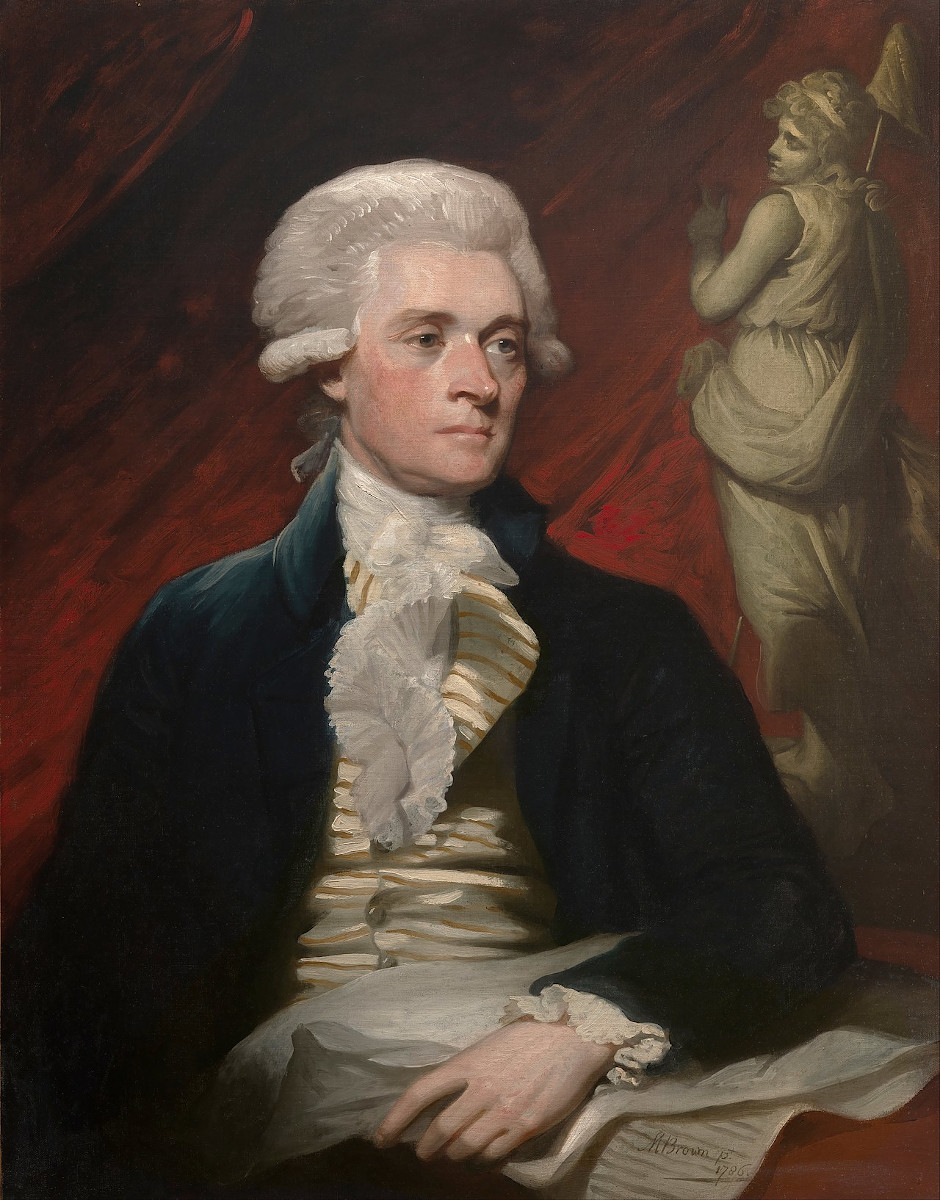
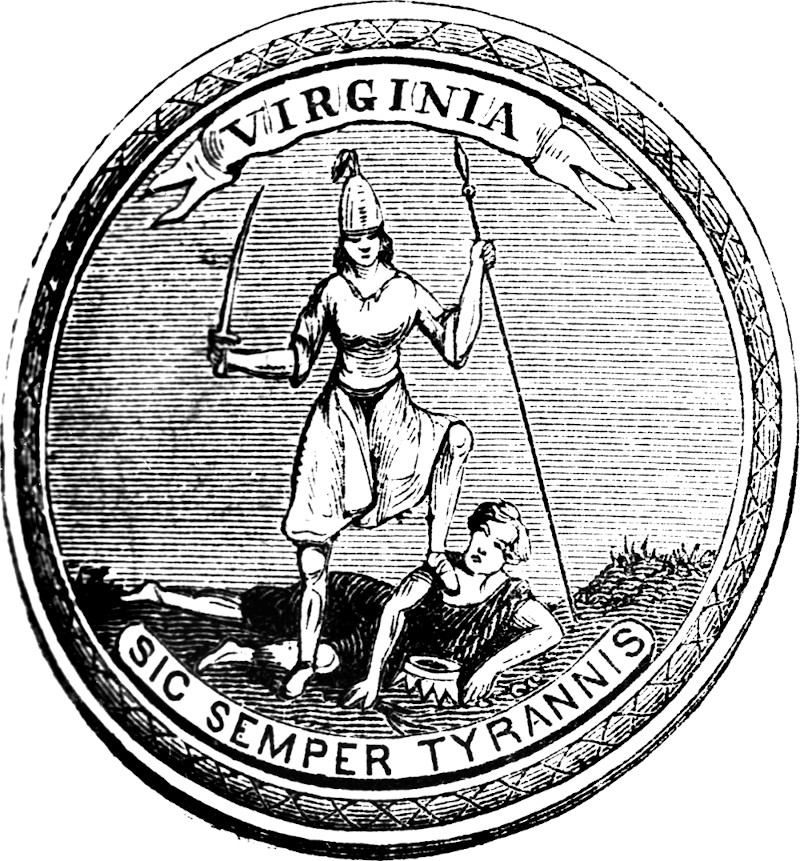
Jefferson knew very well that were his republican and secularist convictions to survive, they need a basis in the form of people. First, they need to be free proprietors, living from their own labor, not subjugated by debt and money in general. Unpoisoned by servitude, they can perceive society as a place of contract of free people, not a ladder of paid service and decree. Second, these people need the best education to secure them from economic stagnation, and giving up the control over themselves to religious and commercial demagogues. Not mentioning agents of various groups pushing for power, damning the liberty of the republic.
The founding of University of Virginia was the great attempt to realize there goals, made by Jefferson in his advanced age[9]. The school was to give young people the best teaching staff, coming from abroad if need be, and an environment for dilligent studying and unrestrained truth-seeking, in the spirit of Enlightenment.
At least that was likely the dream. In reality, Enlightenment of the revolutionary era quickly backslided to the atmosphere of Protestantism and plantations. This gradually degenerated even more into the coalition of “Fire-Eaters”, ideologically defending slavery and pushing for war with the North. How did it all happen? Some historians point to Jefferson’s fondness for monumental architecture, which reportedly raised the costs and also the tuition, pricing out everyone except the local moneyed elite. Probably his age and spending time tending to his private affairs near the end of this life also played a role.
But there is also a scarier explanation. People like Jefferson or Thomas Paine could push the colonies, through the revolution, to a free republic. But did not have the clout to shape economic and social conditions in a way that would make liberty of every person and the whole community safe in its principles. In the historical perspective the United States, like the pre-partitions Commonwealth, can be viewed relatively favorably compared to the majority of other nations, or depressingly, if compared to their own foundational ideas. There is the uncontrolled power of the government, interested in its own infinite growth (regardless of throwing citizens to the wolves in social matters). Even wider is the influence of private power, seeking domination over individual citizen by amassing capital and legal titles.
It’s conceivable that we owe that to the great production of office workers by the economic system. In their daily survival they are at the mercy of a hierarchical machine; functioning of the whole society in this way seems therefore natural to them. Not without their contribution there is also the elevated position of present day grand marshals of the Crown, casually noting their bleak thoughts De vanitate consiliorum – On the Futility of Assemblies.
/-/ Popiel.
Notes
- Sebastian Petrycy z Pilzna, Przydatek do trzecich ksiąg „Polityki” Arystotelesa (in:) Filozofia i myśl społeczna XVII wieku, Warszawa 1979, s. 96; the introduction by Zbigniew Ogonowski, p. 46-48. ↑
- Urszula Augustyniak, Egzorbitancje dysydentów na sejmie 1627 roku jako przyczynek do rekonstrukcji ich programu ideowego za panowania Zygmunta III (in:) Studia historyczno-prawne. Księga poświęcona pamięci Profesora Jana Seredyki, Opole 2008, p. 27-48. The text itself of their “humble request” the was published in the Augustyniak’s anthology: Państwo świeckie czy księże? Spór o rolę duchowieństwa katolickiego w Rzeczypospolitej w czasach Zygmunta III Wazy, Warszawa 2013. ↑
- Łukasz Górnicki, Droga do zupełnej wolności (in:) Pisma, Warszawa 1961, p. 481-482. ↑
- Herbarz polski: wiadomości historyczno-genealogiczne o rodach szlacheckich, part 1, vol. 14, Warszawa 1911, p. 340. https://polona.pl/item/herbarz-polski-wiadomosci-historyczno-genealogiczne-o-rodach-szlacheckich-cz-1-t-14,MTAzNTU5MjI/352/#info:metadata ↑
- Jarema Maciszewski, Wojna domowa w Polsce (1606-1609). Studium z dziejów walki przeciw kontrreformacji. Część 1: Od Stężycy do Janowca, Wrocław 1960, p. 269. ↑
- https://web.archive.org/web/20150518091940/http://www.muzhp.pl/kalendarium/140/zerwanie-sejmu-przez-wladyslawa-sicinskiego-wywiad-1652-3-9.html ↑
- Andrzej Maksymilian Fredro, [O wyższości rzeczypospolitej nad monarchią] (in:) Filozofia i myśl społeczna XVII wieku. It seems that the original volume with this and the next quoted text was republished as Militarium 1 by Narodowe Centrum Kultury in 2015. ↑
- Idem, [Warunki potęgi narodu] (in:) Filozofia i myśl społeczna XVII wieku, p. 348. ↑
- More on Jefferson’s plans for education: https://www.theatlantic.com/magazine/archive/2019/12/thomas-jefferson-alan-taylor-university-of-virginia/600793/ ↑
Start the discussion